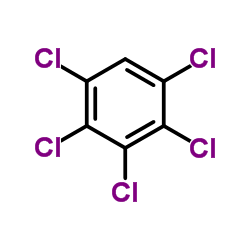Enhancement of aerobic microbial degradation of polychlorinated biphenyl in soil microcosms.
Manuel A Manzano, José A Perales, Diego Sales, José M Quiroga
文献索引:Environ. Toxicol. Chem. 22(4) , 699-705, (2003)
全文:HTML全文
摘要
This article reports the results of various biodegradation experiments on polychlorinated biphenyl (PCB)-contaminated sandy soil employing a mixed culture of acclimatized bacteria. Following the optimization of different variables without chemical pretreatment, the elimination rate achieved of Aroclor 1242 in slurry-phase reactors was 61% after four months of treatment, with the presence of biphenyl as cosubstrate being the most important factor affecting PCB biodegradation. The biodegradation occurred as a first-order process, and it proved most effective in respect to dichlorinated biphenyls (100% removal), followed by trichlorinated (92%) and tetrachlorinated biphenyls (24%). The results also showed that the degradability of PCBs in soil may be enhanced by an advanced oxidation pretreatment (Fenton reaction), producing almost 100% elimination of PCBs at the end of the integrated chemical-biological process and 72% mineralization of the intermediates generated during the chemical pretreatment.
相关化合物
| 结构式 | 名称/CAS号 | 分子式 | 全部文献 |
|---|---|---|---|
 |
多氯联苯(Aroclor 1242)标样
CAS:53469-21-9 |
C6HCl5 |
|
Impacts of molt-inhibiting organochlorine compounds on epide...
2009-11-01 [Comp. Biochem. Physiol. C. Toxicol. Pharmacol. 150(4) , 436-41, (2009)] |
|
Extensive biodegradation of polychlorinated biphenyls in Aro...
2008-01-01 [Chemosphere 73(1) , 126-32, (2008)] |
|
Response of bacterial isolates from Antarctic shallow sedime...
2013-03-01 [Ecotoxicology 22(2) , 240-50, (2013)] |
|
The inhibition of LPS-induced splenocyte proliferation by or...
2004-11-01 [Toxicology 204(1) , 61-74, (2004)] |
|
Enormous PCBs increase in oysters from the coast of Guangdon...
2011-06-01 [Mar. Pollut. Bull. 62(6) , 1333-6, (2011)] |